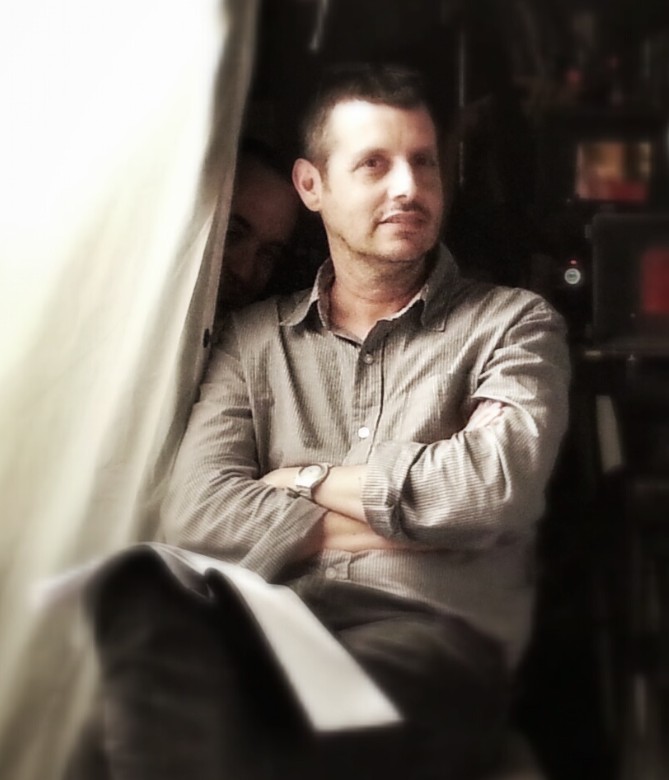Yair Raveh: "There is a Great Jewish Awakening in Culture"
Yair Raveh and colleagues established the 'Leeba' website to reflect the Jewish awakening in culture, conveying the message that Judaism is our common foundation.

"I've been studying with Rabbi Ofer Gisin for ten years," says filmmaker Yair Raveh, the chief editor of the online cultural project 'Leeba', explaining the mission behind the initiative developed by both religious and non-religious individuals. "Through learning, I am exposed to another kind of Judaism, not the one you see in the media: without endless politics and divisiveness. At the same time, I see the Jewish awakening occurring in culture. Today, when you turn on the radio and listen to the hit parade, suddenly there are many religious singers, or artists drawing their messages from Jewish literature. It's happening in literature too: more and more authors with religious backgrounds are publishing with major publishers. It's no accident that a giant publisher like Yediot Books produces many books related to Judaism and Hasidism. Even in my field, cinema, I see it happening. Something is going on."
This 'something happening' inspired Raveh to join three colleagues in creating 'Leeba': Rabbi Ofer Gisin, Rabbi Tzvi Spiegel, and Ayalon Tirosh, a businessman and high-tech professional. "The idea was to establish a website that connects to our shared foundation: Judaism. We aren't saying: 'Observe Shabbat, put on tefillin', but rather sharing stories of people in search. We discuss Judaism, culture, society. When social protest is discussed, we remind people that the desire for social justice is already found in the books of the prophets. One of the major mistakes of secular culture is its disconnect from the Torah. We essentially say you don’t have to be observant to acknowledge that the Torah is foundational to everything."
The founding group recruited Esther Vender, who, alongside Raveh, created the series 'Kathmandu', and serves as the managing editor of 'Leeba'. "But it's a collaborative project, and we all review the materials," clarifies Raveh.
 Yair Raveh (Photo: Eliran Knoller)
Yair Raveh (Photo: Eliran Knoller)Many of the regular contributors were recruited through personal connections. "For example, Yossi Bibiliki—an acclaimed musician in the independent music scene, and a believer with brilliant insights. Or the writer Yonatan Berg, a vagabond at heart who embarked on a journey around the world and sends us a kind of postcard from each stop... With Sivan Rahav-Meir, we also had a connection. When we found out she started giving a class at the Underground Synagogue, we proposed filming it so that thousands could watch instead of just 50 people. Ehud Banai, Shuli Rand... all these people are on a quest. They are all part of this cultural awakening. Shuli Rand is Haredi, filling Caesarea, making blockbuster films and selling platinum albums. Such a reality was unimaginable before. Today, people are much more open. One of the most watched videos on the site is Daniel Zamir performing the Nigun of the Tzemach Tzedek, a Nigun that sounds so sectarian but is a melody anyone can dance to."
Besides amplifying the voices of 'people searching, people in motion', as Raveh defines it, the site also ensures polished texts and an aesthetic experience. There are no ads or public relations: 'People find us through shares on Facebook or by email', but it's clear that the site's team does everything possible to ensure those who visit—stay.
"We want people to feel it’s interesting here. The only significant thing journalism can do is be interesting, and by doing so, start a conversation. I know no secular person in the world will read Ehud Banai’s article for us about becoming a synagogue gabbai—and then become religious because of it. But maybe next time when they read a negative text about religious people, they’ll remember that the singer they love wears a kippah and serves as a synagogue gabbai, so maybe religious people aren't so bad."
How do you explain the Jewish awakening that is happening in culture?
"I've read various interpretations. I somewhat connect to the theory of a values crisis, suggesting that the perception of absolute freedom, the Tel Avivian 'anything goes', ultimately hit a wall. Whether it's due to Rabin’s assassination, the second Intifada, the collapse of the Twin Towers, the economic crisis, or any other universal event. There's also the maturation of people. When you have children returning home from kindergarten talking about the Shabbat blessing, and you don’t know what a blessing is. Or they discuss the grandfather who was murdered in the Holocaust, prompting you to question who he was, why he was killed. Many people discover Judaism this way."
Raveh testifies that he is personally part of this 'awakening'. "I am someone who, in the past ten years, started asking questions about my Jewish identity. Once, my model for drawing closer to Judaism involved people like Uri Zohar, who became religious, changed outwardly too, and simply disappeared. For many, this was an intimidating image.
"What I discovered is that I can study the Torah without becoming someone else. Learning with Rabbi Gisin completely changed the way I think about the world and life. I'm constantly discovering new things: studying the weekly Torah portion and suddenly understanding where the expressions in your mother tongue come from.
"It bothers me a lot that I discovered Rashi only five years ago. In my school, they didn't teach Rashi. I do not want this situation to continue. The statement of initiatives like 'Leeba' is simple: know that you are Jewish, and this is your rich heritage."

